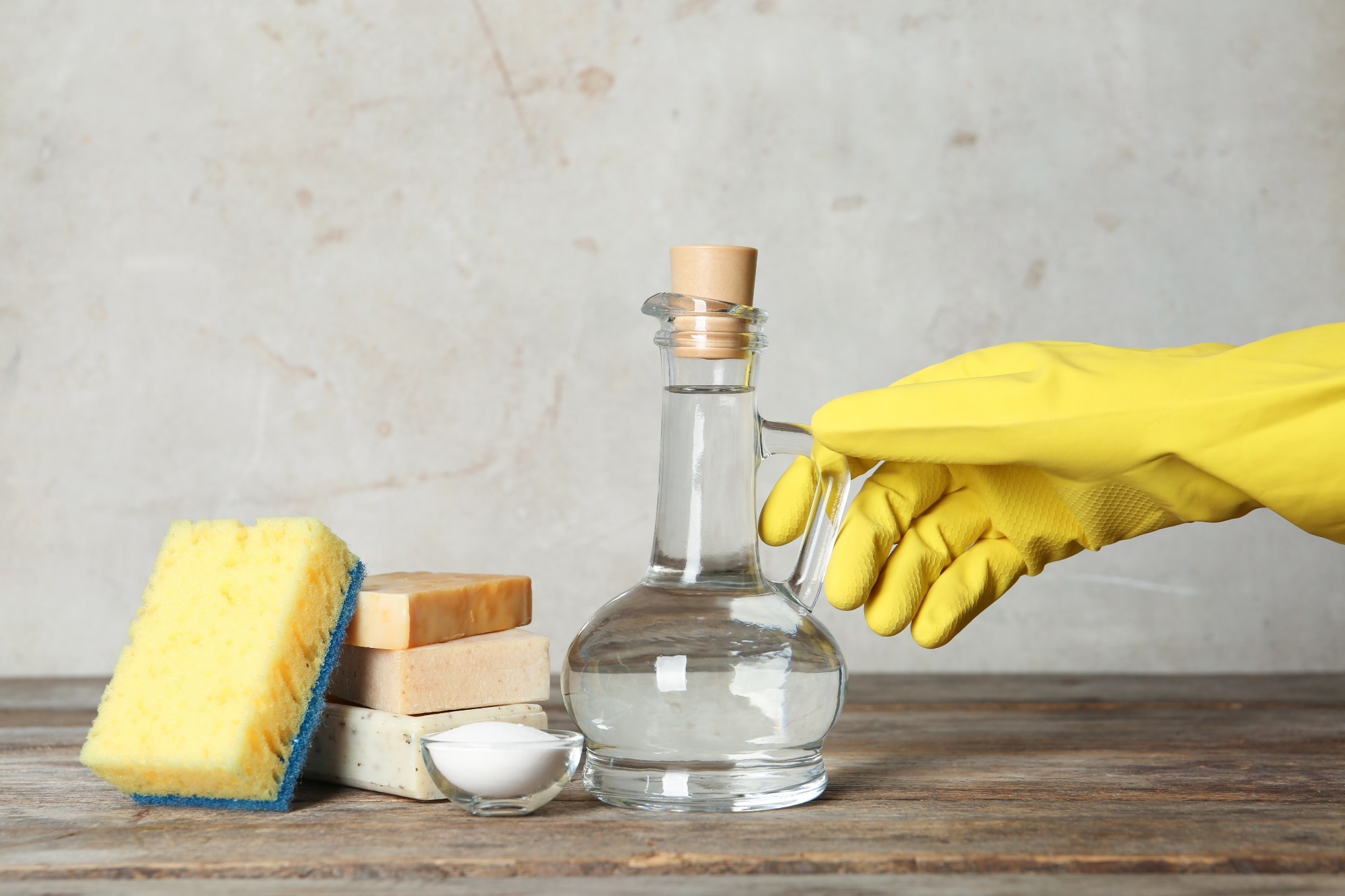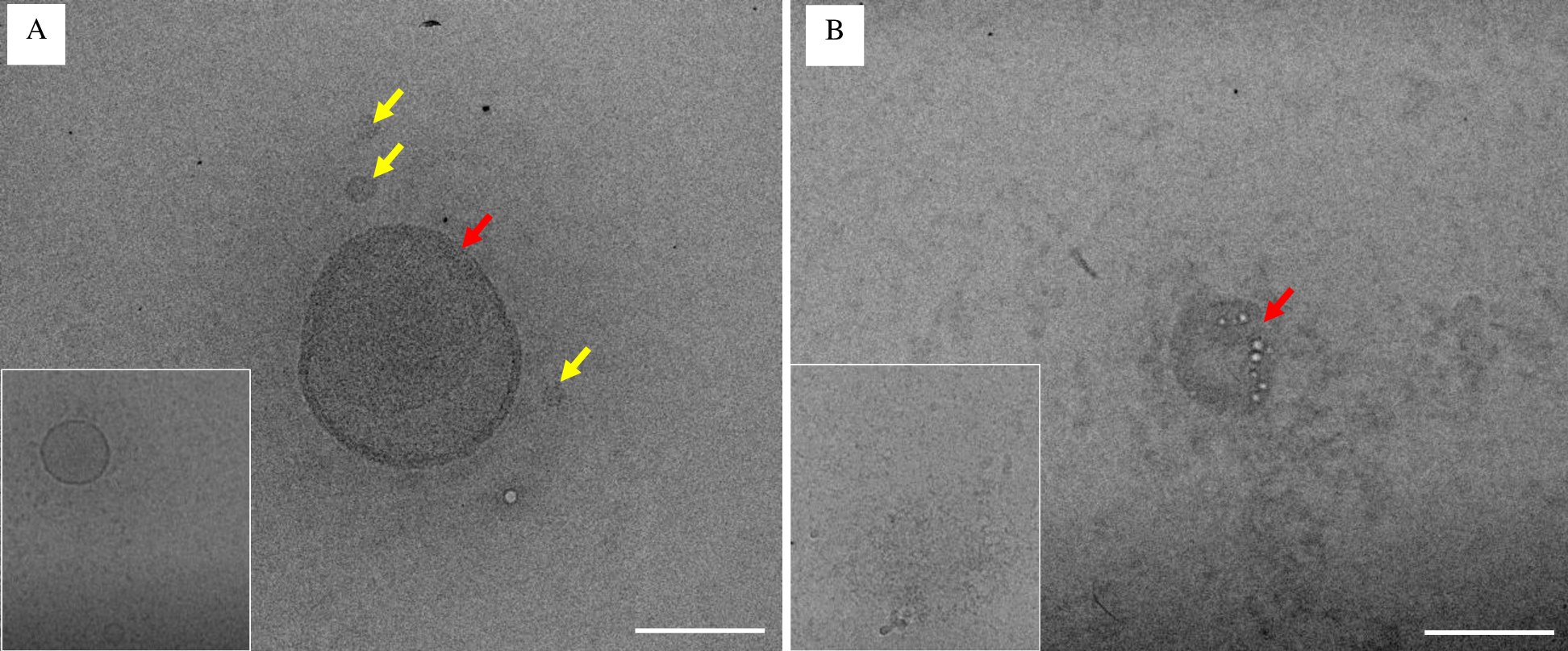A study published in the journal PLOS ONE demonstrates the effectiveness of acetic acid, the main component of vinegar, in inactivating severe acute respiratory syndrome coronavirus 2 (SARS-CoV-2).
 Study: Effect of acetic acid inactivation of SARS-CoV-2. Image Credit: New Africa / Shutterstock
Study: Effect of acetic acid inactivation of SARS-CoV-2. Image Credit: New Africa / Shutterstock
Background
SARS-CoV-2, the causative pathogen of the coronavirus disease 2019 (COVID-19) pandemic, is a zoonotic RNA virus that causes a wide variety of symptoms in humans, ranging from mild flu-like symptoms to fatal pneumonia and multiorgan failure.
The virus primarily infects the upper respiratory tract epithelium and gradually spreads to the lower respiratory tract to induce severe lung damage. Systemic transmission of the virus to other organs has also been documented. The spike glycoprotein on the viral envelope binds to the human cell membrane receptor angiotensin-converting enzyme 2 (ACE2) to initiate the viral entry process.
Regarding mode of transmission, the virus has been found to spread directly from infected persons to nearby contacts via large respiratory droplets and small aerosols. In addition, indirect viral transmission through contaminated surfaces has also been reported.
In the current study, scientists have examined the effectiveness of acetic acid in inactivating SARS-CoV-2 and preventing host cell entry.
Acetic acid is a major active component of vinegar, which is used widely to remove bacteria from fresh products. The component is also known to have antiviral activities. For example, studies have shown that acetic acid disaggregates surface glycoproteins of influenza viruses, destroys viral envelop, and prevents viral transmission.
Study design
The study examined the anti-SARS-CoV-2 activities of white distilled vinegar, which contains 6% acetic acid. The virus neutralization by acetic acid was tested by a modified version of the Median Tissue Culture Infectious Dose (TCID50) assay.
Morphological analysis of acetic acid-treated SARS-CoV-2 was performed by transmission electron microscopy. The ability of acetic acid to block the interaction between the SARS-CoV-2 spike receptor binding domain (RBD) and human ACE2 was determined by enzyme-linked immunosorbent assay (ELISA).
Inactivation of SARS-CoV-2
The findings of TCID50 assay revealed that the exposure to 6% acetic acid for 15 minutes caused complete long-term inhibition of viral replication.
In general, coronaviruses are round-shaped structures with a diameter of approximately 80 nm. The transmission electron microscopic analysis of untreated SARS-CoV-2 revealed morphologically intact structures similar to coronaviruses belonging to the Coronaviridae family.
The treatment of SARS-CoV-2 with 6% acetic acid caused significant alterations in viral morphology, including misshapen structures, reduced number of viral particles, and disorganized virion structure.
 Effect of vinegar on SARS-CoV-2 viral particles by transmission electron microscope (TEM). (A-B) Representative TEM images. (A) The untreated cells, water (- vinegar) SARS-CoV-2 viral particles shows morphodiagnostic features of family Coronaviridae with morphologically intact structure whereas (B) Cells treated with 6% acetic acid (+ vinegar) SARS-CoV-2 viral particles showing presence of abnormal viral morphodiagnostic with misshapen structure with fewer viral particles, and disorganized virion structure. Scale bar = A-B 100nm. Insets are shown from additional images of the same sample.
Effect of vinegar on SARS-CoV-2 viral particles by transmission electron microscope (TEM). (A-B) Representative TEM images. (A) The untreated cells, water (- vinegar) SARS-CoV-2 viral particles shows morphodiagnostic features of family Coronaviridae with morphologically intact structure whereas (B) Cells treated with 6% acetic acid (+ vinegar) SARS-CoV-2 viral particles showing presence of abnormal viral morphodiagnostic with misshapen structure with fewer viral particles, and disorganized virion structure. Scale bar = A-B 100nm. Insets are shown from additional images of the same sample.
Spike RBD – ACE2 interaction
The findings of ELISA revealed that the treatment with 6% acetic acid significantly inhibited the binding of SARS-CoV-2 spike RBD with human ACE2 at all tested timepoints (5, 10, 30, and 60 minutes). The highest inhibition by 6% acetic acid was observed at a 30-minute timepoint.
Study significance
The study demonstrates the virucidal activities of acetic acid against SARS-CoV-2. Based on the study findings, acetic acid at 6% concentration is capable of inactivating SARS-CoV-2 and blocking the interaction between viral spike RBD and human ACE2.
White distilled vinegar commonly used in households contains 6% acetic acid. Thus, the findings support using vinegar as a disinfectant to eliminate SARS-CoV-2 from frequently-touched surfaces and subsequently prevent indirect virus transmission.